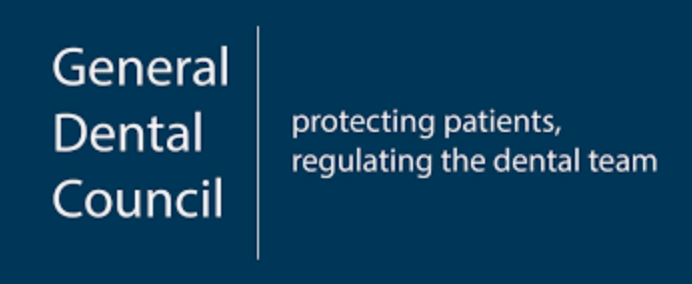

https://www.probityandethics.com/
Facing a General Dental Council (GDC) investigation can be a stressful and uncertain time for any dental professional. Whether it arises from patient complaints, issues with clinical practice, or professional conduct concerns, understanding how to navigate the process is crucial. Knowing how to respond to a GDC investigation can make a significant difference in the outcome and help protect your career.
In this blog, we will explore the GDC investigation process, discuss how to handle GDC complaints, and offer practical advice for responding to GDC investigation inquiries.
The GDC investigation process begins when the GDC receives a complaint or referral about a dental professional’s fitness to practise. Complaints can come from various sources, including patients, colleagues, employers, or self-referrals. These complaints may relate to issues such as clinical practice, professional conduct, communication skills, or breaches of professional standards. The GDC’s role is to investigate these complaints to ensure the safety of patients and the integrity of the dental profession.
When the GDC receives a complaint, it conducts an initial assessment to determine if the matter falls within its remit. Not every complaint will lead to a formal investigation. If the issue is minor or does not raise concerns about the dental professional’s fitness to practise, the GDC may decide to take no further action or handle the matter locally.
If the GDC decides that the complaint requires further action, it will initiate a formal investigation. During this stage, the GDC gathers relevant information, which may include:
As part of the GDC investigation process, the dental professional involved will be notified of the complaint and given an opportunity to respond. How you approach responding to GDC investigation inquiries is crucial, as it can significantly influence the investigation’s direction and outcome.
Receiving a GDC complaint can be distressing, but it is important to remain calm and act professionally. Here’s how to handle GDC complaints effectively:
Once you receive notification of a GDC complaint, familiarize yourself with the details of the allegations. It is essential to seek advice from your professional indemnity provider or a solicitor experienced in GDC cases. Early GDC fitness to practise advice will help you understand the process and provide guidance on how best to respond. Make sure to obtain professional advice before submitting any response to the GDC.
When preparing your response to the complaint, consider the following points:
During the investigation, the GDC will review the evidence, including your response and any documentation. This process can take several months, and the GDC may request further information or clarification at any point.
Cooperating with the GDC is crucial during the GDC investigation process. Respond promptly to any requests for information and be prepared to attend meetings or interviews if necessary. Failure to engage with the investigation may result in more serious consequences, including interim restrictions on your practice.
If the GDC believes there is an immediate risk to patient safety or public confidence, they may refer your case to the Interim Orders Committee. The committee has the power to impose interim conditions on your practice or suspend your registration while the investigation continues. In such cases, legal representation is essential to present your case effectively and argue against unnecessary restrictions.
After the investigation, the GDC will decide whether the complaint requires further action. Understanding the potential outcomes can help you prepare and manage expectations.
The most favourable outcome is when the GDC concludes that there is no evidence of impaired GDC fitness to practise and decides to close the case with no further action.
If the GDC identifies concerns but finds they do not impair your fitness to practise, they may issue a warning. Warnings are not restrictions on your practice but remain on your record for a specified period. They serve as a reminder to uphold professional standards and can influence future GDC decisions if further complaints arise.
In some situations, the GDC may resolve the matter by agreeing on undertakings. Undertakings are conditions that you voluntarily agree to follow in your practice, such as additional training, supervision, or changes to clinical procedures. These conditions aim to support you in addressing the concerns while allowing you to continue practising.
If the GDC believes there is sufficient evidence of impaired fitness to practise, they may refer your case to a Practice Committee hearing. During the hearing, both the GDC and you (or your legal representative) will present evidence, and the committee will decide on the appropriate outcome. This could include conditions on your practice, suspension, or removal from the GDC register.
As soon as you receive a complaint, contact your professional indemnity provider or a solicitor experienced in GDC investigations. Early GDC fitness to practise advice helps you understand the process, guides your response, and protects your rights.
Keep detailed records of your interactions with the GDC, patients, and colleagues. Proper documentation provides vital evidence for responding to GDC investigation inquiries effectively.
Remain professional throughout the process, even if the complaint feels unjust or upsetting. How you handle GDC complaints reflects your professionalism and commitment to high standards of patient care.
Use the experience as an opportunity for reflection. If the complaint highlights areas for improvement, take proactive steps to address them. Demonstrating insight and a willingness to learn can positively influence the investigation’s outcome.
Dealing with a GDC investigation is undoubtedly challenging, but understanding the GDC investigation process and responding appropriately can make a significant difference. By seeking advice early, maintaining professionalism, and engaging with the GDC throughout the process, you can navigate the situation more effectively. Remember, support is available through your professional indemnity provider, legal advisors, and trusted colleagues.
If you find yourself facing a GDC complaint, stay informed, and take proactive steps. By handling GDC complaints carefully and showing a commitment to professional development, you can help protect your career and continue to provide quality care for your patients.
© Copyright 2025 Probity & Ethics. All Rights Reserved.